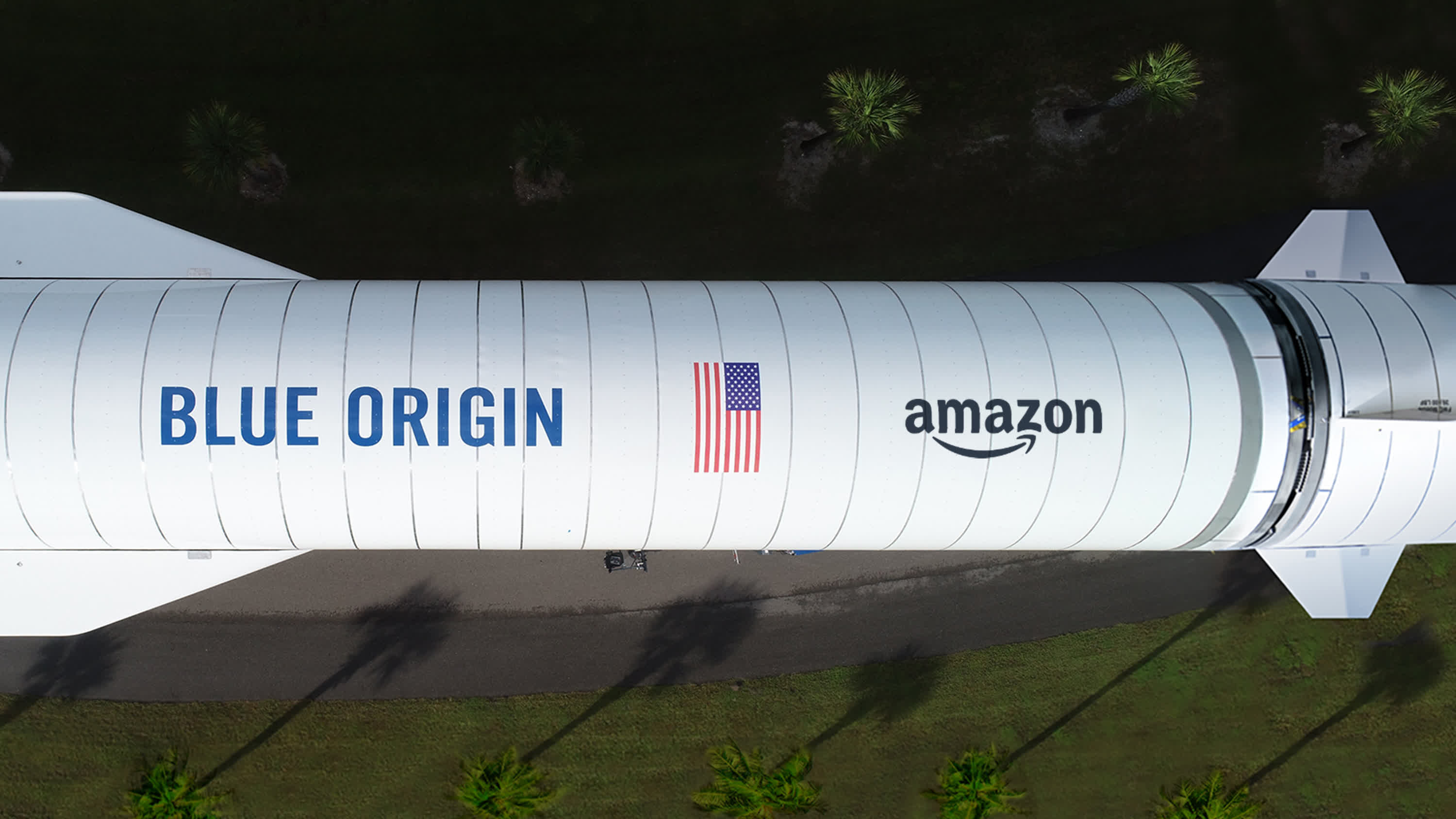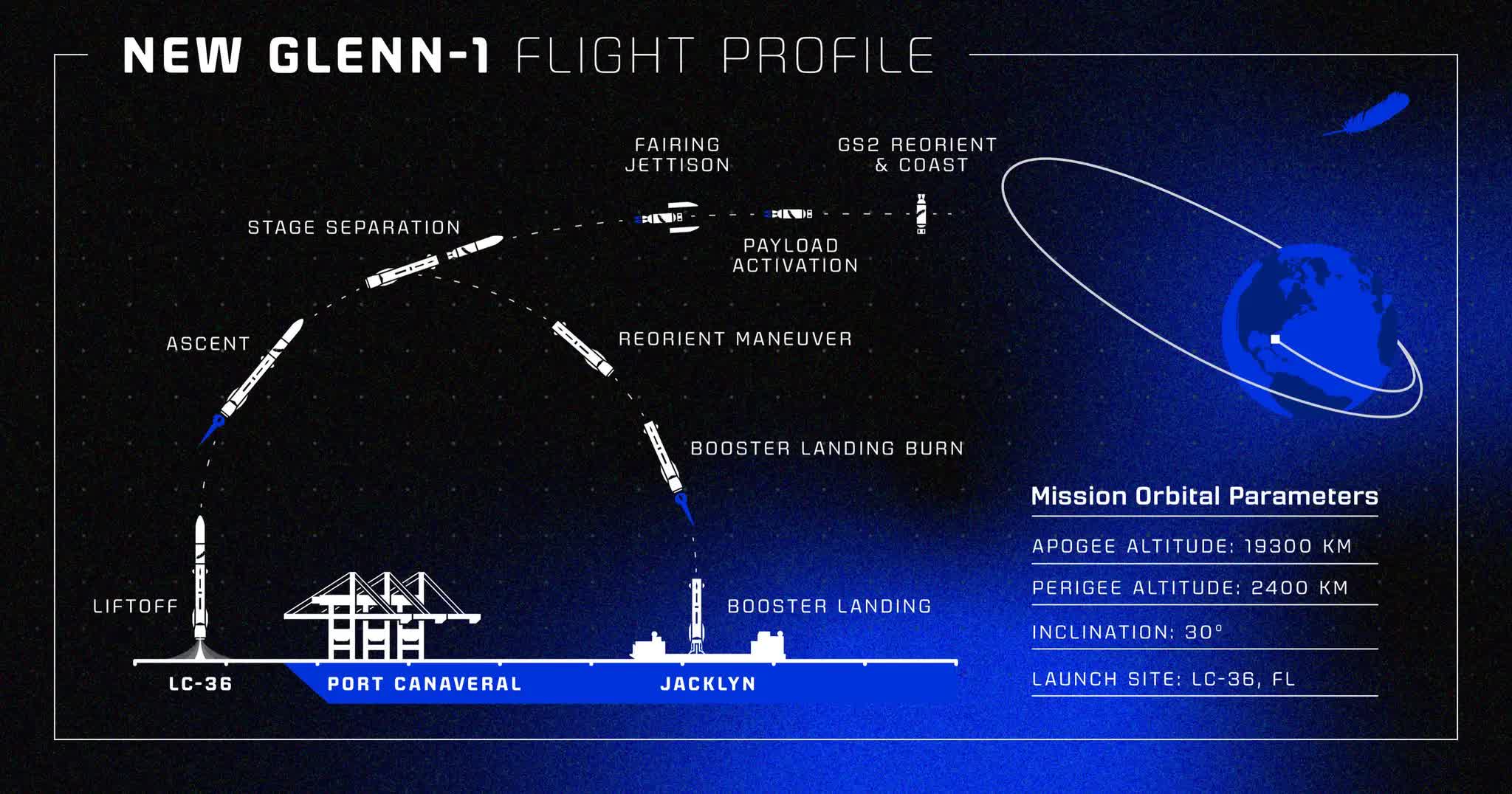Serving tech enthusiasts for over 25 years.
TechSpot means tech analysis and advice you can trust.
Highly anticipated: It's been nearly 25 years since Jeff Bezos founded Blue Origin with grand ambitions of making space travel cheaper and more accessible. Yet, the Amazon mogul's rocket company has remained largely focused on suborbital missions. That could change in a big way very soon with the New Glenn rocket.
Blue Origin is readying its massive new New Glenn rocket for its first-ever orbital launch attempt, scheduled as early as 1 a.m. ET on Monday from Florida's Cape Canaveral.
Standing at approximately 320 feet tall, New Glenn boasts more than twice the power of SpaceX's frequently flown Falcon 9 rocket at liftoff. It has been specifically designed and engineered as a heavy-lift launch vehicle capable of hauling larger satellites and other gear into space.
As this is a debut mission, New Glenn will not be carrying any customer payloads. Instead, it will transport a Blue Origin-built piece of demo tech called the Blue Ring Pathfinder into orbit as a test run.

If New Glenn performs as planned, Blue Origin would vault itself as a direct competitor to SpaceX and its fleet of Falcon rockets, which currently dominate the market. The new rocket would provide Blue Origin with the capability to undercut SpaceX on pricing for satellite deployments and other orbital missions.
However, there are still a lot of 'ifs' involved. New Glenn must execute nearly every step of a highly complex process that will unfold over the course of several hours after liftoff. One of the critical challenges is firing all seven of its powerful BE-4 engines long enough to overcome Earth's gravitational pull. It must then shed its massive booster section, which is supposed to pull off an upright landing on a waiting ocean platform for future reuse.
Meanwhile, the rocket's upper stage will ignite a vacuum-optimized engine to propel itself and its payload into the intended orbit. Achieving orbit requires reaching a speed of approximately 17,500 miles per hour – nearly 23 times the speed of sound.
Total mission success is not guaranteed on this first test flight. Blue Origin will be wearing their "embrace the risk" mentality, being ready to blow up the rocket if it starts veering off in an unsafe direction. Just getting the second stage into its target orbit would be considered a win.
If you're tuning in live, Blue Origin will be streaming the potential historic launch (or fireball) around an hour before liftoff on their YouTube channel and website.



/cdn.vox-cdn.com/uploads/chorus_asset/file/25833258/Screenshot_2025_01_15_at_8.11.01_PM.png)






 English (US) ·
English (US) ·